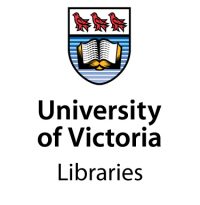“When it is no longer your call”, a PhD dissertation in the School of Nursing, by Megan Elise Kirk
https://dspace.library.uvic.ca:8443/handle/1828/11785
Abstract:
The purpose of this study was to explain how public health renewal has shaped public health nursing practice, how public health nurses have managed these changes, and the perceived impact of such changes on health outcomes. I used the grounded theory method to develop a theoretical explanation of how public health nurses navigated the changing organizational milieu in British Columbia. I interviewed 29 public health nurses and three public health nursing managers in three health authorities to explicate the impact of healthcare reform initiatives on public health nurses and public health nursing practice. Over the last few decades, there have been several organizational and policy changes in British Columbia, intended to strengthen the health system and health service delivery. These changes have eroded the nature of the public health nurse role and negatively influenced public health nursing practice, undermining the ability of public health nurses to improve population health and health equity. Many participants were concerned about changes in their practice and reported that leaders restricted their role, particularly in their broad health promotion and community development efforts. Nurses in this study highlighted specific organizational and policy changes that have undermined their effectiveness. For example, nurses talked about cuts to the public health budget, the disbanding of health unit structures, the appointment of leaders who lacked public health or public health nursing knowledge and experience, and the increase in mandated targeted public health nursing programs with a corresponding decrease in universal programs. As a result, participants engaged in the process of managing the eroding of the public health nurse role, which comprises five strategies. In standing tall, a number of nurses in this study advocated for their practice and pushed back against decisions that jeopardized the quality of public health nursing programs and services with varying degrees of force. Public health nurse participants also worked within organizational expectations and constraints in the process of getting by. In going underground, several public health nurses engaged in various activities in secret by harnessing their community connections and attended to community issues they believed went unaddressed. A number of nurses, dissatisfied by the state of their role, were contemplating getting out and considered other employment possibilities. Throughout the process of navigating external changes affecting practice, many nurses restored their dedication to the public health nurse role in reaffirming commitment. Given the limited research exploring the impact of healthcare reform and public health renewal on public health nursing practice, this research helps to provide an initial glimpse into the effects of such change on public health nurses in British Columbia.
To read more, visit UVicSpace https://dspace.library.uvic.ca:8443/handle/1828/11785
*UVic’s open access repository, UVicspace, makes worldwide knowledge mobilization possible. Through this platform, researchers at any institution have access to dissertations (and theses and graduate projects) published by our graduate students. This also makes works available to the interested layperson, who may be engaged in learning more about the research being done at UVic, with no paywall. UVic’s graduate students are doing valuable research every day – but sometimes it goes unsung. Our goal with this series is to shine a light on our students by featuring excellence, one achievement at a time.
The UVic LIbraries ePublishing Services Team
